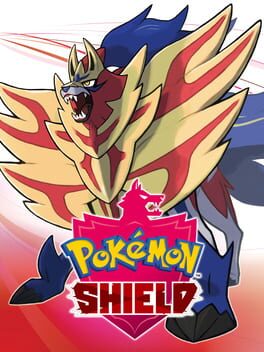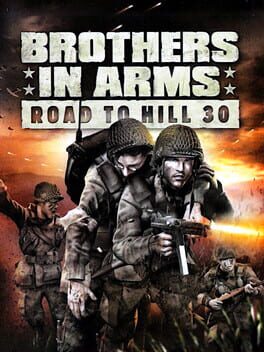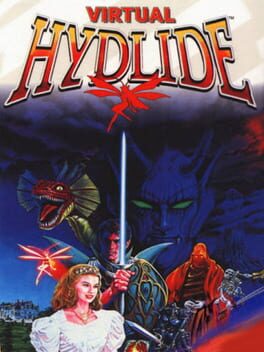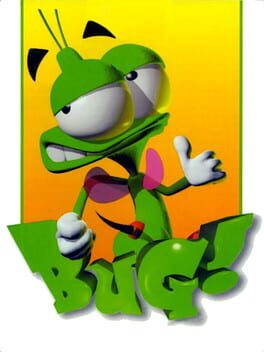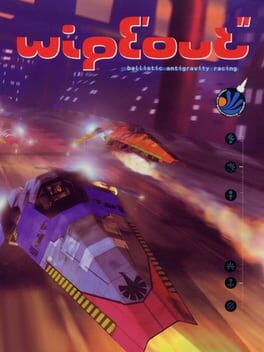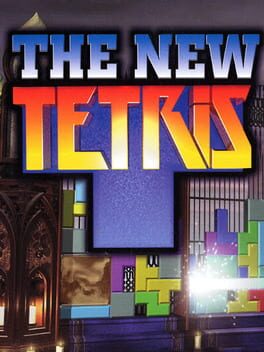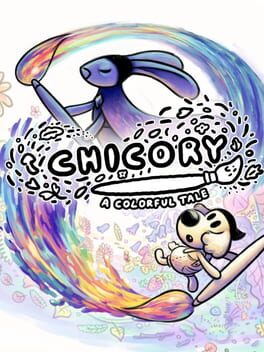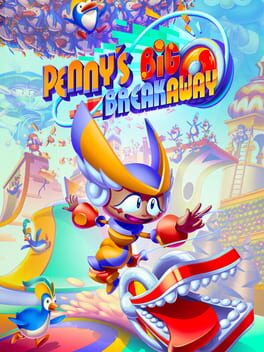brockreiher
1083 Reviews liked by brockreiher
Pokémon Shield
2019
for decades gamers have pondered one of the world's most esoteric psychological dilemmas: "is war bad?"
i've never played haze or spec ops: the line, so i couldn't tell you for certain. but after running blindly through the cover of smoke and peripherally seeing my allies get split to shreds by machine guns and mortar strikes, i'm thinking it might be
turns out being historically accurate and recreating actual battles is enough to convey just how hellish war really is. top it off with simple-but-effective squad mechanics and weapons that can't hit shit unless your enemy's already pinned down - you've got a horror game in disguise
good stuff, randy pitchford. i'm sure you won't completely fall off in 4 more years - or masturbate to children
i've never played haze or spec ops: the line, so i couldn't tell you for certain. but after running blindly through the cover of smoke and peripherally seeing my allies get split to shreds by machine guns and mortar strikes, i'm thinking it might be
turns out being historically accurate and recreating actual battles is enough to convey just how hellish war really is. top it off with simple-but-effective squad mechanics and weapons that can't hit shit unless your enemy's already pinned down - you've got a horror game in disguise
good stuff, randy pitchford. i'm sure you won't completely fall off in 4 more years - or masturbate to children
Virtual Hydlide
1995
Way more interesting than it has any right to be. If you can look past the ghastly performance and combat, what lies beneath is an interesting RPG all about exploration and cool vibes. A genuinely interesting art direction, world structure, music, and item management bring this game a long way. I cannot imagine playing it without a guide however.
Bug!
1995
Wow this is like shockingly really bad. Like damn, for a console with so many bangers and hidden gems I was surprised how awful this game is. First off what is with the art direction in this game it’s so ugly. Everything looks like it was hit with a goddamn cartoon frying pan. Second off, these levels man. I think the general concept is stellar, 2.5D worlds you can go in and out of the foreground. Sounds great to me right? It’s terrible. The movement from Bug is so stilted and stiff and going anywhere always feels like a challenge. Doesn’t help these levels are so fucking long and the boss designs really don’t help matters. Idk man, only look into this if you are like me and are really curious about the Saturn’s history. Otherwise, just play any other game from the console it’s not worth it.
Wipeout
1995
Virtual Hydlide
1995
separates the True Kusoheads from the rest: those Normal Gamer's and the Demon's Darks they just love to roll around in. virtual hydlide is t&e soft's masterpiece (relative), for all that entails. it's like playing golf but with swords, and without any golf balls. not quite like a golf video game (don't worry t&e soft has you covered there too!!), but like actual golf, midsummer in humid, 40 celsius, salty air as the sun sears off your topmost layer of skin. it kind of hurts! it's kind of an unwelcoming, unpleasant experience that makes you wish, at times, that you were being lobotomized instead. but to think that way is reckless. Don't Mistake Recklessness for Courage.
The New Tetris
1999
This review contains spoilers
For half a decade, I resisted diving into Red Dead Redemption 2, troubled by the circumstances surrounding its genesis. Learning about the reports of labor exploitation and crunch leading up to its release left me deeply disheartened by the working conditions endured by its developers.
Despite my lingering reservations, I eventually found myself pulled towards the game during a lull in recent releases. Now, having finally immersed myself in Red Dead Redemption 2, I'm grateful for the experience as it is one of the medium’s crowning achievements and a grand, maximalist work of art with one of the most fully realized worlds and some of the best character writing the medium has to offer.
While much has been said about Red Dead Redemption 2's expansive world and its protagonist, Arthur Morgan, I deliberately distanced myself from discussions about the game, allowing my experience to remain fresh.
Describing the world of Red Dead Redemption 2 as "alive" might seem cliche, but it truly embodies a sense of authenticity rarely achieved in open-world games. The world feels genuinely inhabited and organic, surpassing the typical interactive environments found in most games.
This authenticity is the result of numerous intricately woven elements. From the ambient soundtrack and immersive sound effects to the dynamic interactions between characters, coupled with captivating locations and meticulously crafted topography, every aspect harmonizes to create an unparalleled level of immersion.
Simply navigating this game’s environments was a delightful sensory experience. What's more, the world often responds to the player in subtle yet meaningful ways.
In one instance early in the game, I encountered a man in distress, crying out for help after being bitten by a snake. Offering him a health tonic saved his life and earned me his gratitude.
Hours later, while wandering through Valentine, I unexpectedly crossed paths with him again outside the gunsmith's shop. He thanked me for my earlier assistance and generously offered to cover a purchase at the shop.
This encounter was just one of numerous instances where the game acknowledged my actions and later rewarded me with interactions that reflected them, further enhancing the authenticity and believability of its world.
In that sense, it’s one of the least “videogamey” video games I have ever played. Rarely do things in the open world feel prescribed or like you’re tackling checklists, even when you are, such as when you’re hunting one of the game's dozen or so legendary animals or legendary fish.
Some may malign the microsystems in the game that lend a light simulation feel, such as the need to sleep, cook, and eat food. But they all tie back to how you engage with this world.
All of this starkly contrasts the game’s biggest flaw, its mission design. I understand that Rockstar wants to create these bombastic, cinematic, setpiece-driven missions for the player to experience. However, they are seemingly terrified of the player missing out on the carefully choreographed moments. The result is often a frustratingly restrictive mission design that penalizes even slight deviations from the intended experience.
Despite its unnecessarily rigid structure, the mission captivates players with its cinematic presentation, drawing them into the heart of the action.
One example of this is near the end of the game, where I was escorting John Marston during an ambush. Some enemies popped up atop a nearby hill, and I wanted to charge into them with my shotgun to make their little Pinkerton heads explode like overcooked pizza rolls.
Then came the frustration of encountering a fail state that seemed entirely unjustified. The game abruptly informed me that John had perished because I had strayed too far from him, even though I was just a mere 15 feet away.
Another exasperating moment occurred during a covert infiltration of an Army fort alongside Charles. The game instructed me to eliminate soldiers using a bow and arrow silently, but I opted to employ my tomahawk for stealth takedowns instead. Yet, when I approached a lone soldier facing away from me and dispatched him, the game unexpectedly triggered a fail state, citing my supposed detection.
These examples may sound trivial and arbitrary–because they are– but they highlight a significant flaw in the game's design. While many missions and setpieces are undeniably captivating, the underlying structure is marred by these inexplicable constraints, undermining the sense of freedom that the open world otherwise offers to players.
So, if half of the game is so compromised, why am I giving this five stars? Because Red Dead Redemption 2’s biggest triumph is its thought-provoking narrative and incredible character writing.
Red Dead Redemption 2 is ultimately about the death of the yeoman fantasy at the hands of Manifest Destiny and a crumbling way of life for the characters within this world. These are not “good people” in the traditional sense because they rob and kill to make ends meet. They are outlaws in the truest sense of the word, even if–most–Van Der Linde gang members have a sense of honor.
However, as the American state becomes increasingly powerful at the behest of the advancement of capitalism as the dominant economic system, the walls begin to close around them.
The Van Der Linde gang's evolution is stark; initially targeting outlaws, they shift focus to anyone capable of providing the necessary resources for survival. Dutch, the gang's leader, assumes the role of a paternal figure for many, having rescued them from dire circumstances. He wields his revered authority to shield his chosen family, yet his desperation to evade their looming fate intensifies as the game progresses.
In this changing world, there's no place left for the likes of the Van Der Linde gang. Their options narrow to either conforming to the relentless march of the progressing American state or facing annihilation by it. Consequently, Dutch repeatedly seeks one last job, a final endeavor to secure the gang's escape to distant, almost mythical lands like Tahiti.
Arthur painfully recognizes the gang's plummeting prospects and Dutch's unraveling sanity. With each passing moment, Dutch's decisions grow more reckless, leading the gang on a destructive path as they hop from one place to another, endlessly chasing the elusive promise of "one last job” and leaving chaos in their wake.
Yet Arthur and the others continue to follow Dutch, despite their better judgment, because they all love and feel indebted to him even if they know Dutch is likely and unknowingly leading them all to their demise.
The game also astutely observes that the new order replacing the era of outlaws may be even more rotten and corrupt. Under a regime fueled by unchecked capitalism and rampant labor exploitation, the scant remnants of freedom vanish, leaving individuals ensnared in a system that prioritizes profit over human dignity.
Arthur Morgan may well be one of this medium's most nuanced, endearing, and fascinating characters. I was initially drawn in by his rugged cowboy charisma, but over the course of the game, I found myself deeply attached to this mountain of a man.
The game excels in forging a deep connection with Arthur, immersing players in his internal struggles through poignant monologues and meaningful actions. Few games achieve such a profound insight into the protagonist's psyche as this one does with Arthur Morgan.
From the outset, Arthur grapples with inner turmoil, questioning the trajectory of his life, the morality of his deeds, and his purpose in the world.
It's evident that Arthur carries the burden of his past atrocities, which increasingly gnaw at him as he ages. There is a good man within Arthur, but he’s committed grim acts to persist on a path that feels more like destiny than choice. One poignant example is his relationship with Mary, his love interest, whose presence in various side quests underscores the impossibility for Arthur to break free from his tumultuous past and embrace a semblance of normalcy.
Although the game features a morality system ranging from dishonorable to honorable, portraying Arthur as dishonorable feels at odds with the narrative's portrayal of him in a chivalrous light despite his morally ambiguous actions, such as shaking down poor farmers for debt repayment.
As Arthur struggles with this internal dichotomy, he often pushes it to the back of his mind, focusing solely on the day-to-day struggle for survival. However, everything changes later in the game when he receives a devastating diagnosis: an illness that will inevitably lead to his demise: tuberculosis.
Arthur is then compelled to confront the morality of his past actions and their impact on others in the face of his own mortality. Many of the side quests from earlier chapters climax during this period, with Arthur opting to forego the harmful deeds he once would have committed to ease the burdens of those around him.
A poignant example of this transformation is his interaction with Mrs. Downes, a farmer's widow from whom Arthur extorted money earlier in the game. Mrs. Downes succumbs to the same illness that afflicts Arthur, and their encounter serves as a turning point for him. Witnessing her desperate situation, Arthur is overcome with guilt and decides to provide her and her son enough money to escape their hardships. He refrains from seeking forgiveness, feeling unworthy of it.
Although Arthur uses his diagnosis and finite time to help others, he still feels unworthy of redemption.
This marks a significant shift in Arthur's journey towards redemption. No longer able to justify his past actions, he strives to pursue a more righteous path, even if it means going against his former duties as an enforcer for the gang.
Arthur's resolve to help John, who has a family to care for, symbolizes his commitment to breaking free from the gang's destructive cycle once and for all. By this stage, Arthur's disillusionment with Dutch has peaked, and unquestioning loyalty has been replaced by a clear-eyed recognition of Dutch's reckless and senseless actions.
The tipping point comes when Dutch manipulates a group of Lakota natives into a futile diversion, sparking a needless conflict with the US Army, and publicly executes an oil baron without remorse. These actions further cement Arthur's conviction to sever ties with Dutch and his misguided leadership.
Despite being aware of his inevitable demise, Arthur sees John as a beacon of hope, someone with a future worth fighting for. His terminal diagnosis now brings him a sense of clarity and purpose. Unlike those who are uncertain about their fate, Arthur views his impending death as a gift—a catalyst for self-reflection and embarking on a new, righteous path.
Arthur's journey reaches its climax as he aids John in breaking free from the grip of Dutch's manipulative schemes.
In a climactic setpiece, the Pinkertons, relentless pursuers who have been tracking the gang throughout the game, finally close in on them. Both Arthur and John find themselves betrayed and exploited by Dutch during this chase, mere pawns in his relentless pursuit of escape. This pivotal moment marks Arthur’s final redemption, as he sacrifices the final moments of his life to give John and his family enough time to escape.
Arthur passes his hat on to John moments before his death. Knowing his time has come to an end, he finds solace in the knowledge that John and his family will persevere in the face of his imminent demise.
The game’s epilogue has the player taking control of John, grappling with his own identity crisis as he navigates life on the run with his family, unable to break free from the specter of violence looming over them—a haunting echo of Dutch's legacy.
Yet, amidst the turmoil, John finds solace in the memory of his dear friend Arthur, whose selfless sacrifice is a guiding light. Inspired by Arthur's noble example, John resolves to leave the past behind and forge a new path built on the foundation of peace and family.
Although he has long passed, Arthur's indelible presence lingers throughout the epilogue, his actions shaping the very fabric of John's newfound existence. This touching connection is captured in a scene where the player, controlling John, meticulously constructs a house, each frame infused with the symbolic presence of a Blue Jay—a subtle yet profound homage to Arthur's enduring legacy.
In certain folklore traditions, Blue Jays hold symbolic significance as protectors or guardians, believed to be spirits of those who have passed on, watching over and safeguarding their loved ones. It’s not the most subtle symbolism, but it is a deeply heartfelt one nonetheless.
The game concludes with John successfully escaping the lifelong turmoil he and his family endured, all thanks to Arthur's profound influence and the lasting impact of his actions on John's life. However, the conclusion is tinged with a bittersweet realization of the tragic events awaiting John in Red Dead Redemption.
Red Dead Redemption 2 is a monumental achievement in both vision and execution. Its immersive open world and compelling narrative transcend many of its shortcomings, such as its flawed mission design. However, it also serves as a sobering reminder of failed leadership, given the labor exploitation that marred its creation—an irony that echoes the game's portrayal of the exploitative nature of capitalism.
While I frequently criticize the current landscape of AAA gaming, which often prioritizes production values over innovation, resulting in skyrocketing budgets and an unsustainable model, I still believe there's a place for grand, maximalist experiences like Red Dead Redemption 2 in the industry–ones that use their massive budgets to expand upon the ambition of the creators. However, not every game should aim for this scale or direction, as doing so contributes to many of the issues plaguing the industry today.
Furthermore, it should prompt us to reflect on the significance of productive labor. When employees are pushed to the brink, logging upwards of 90-hour workweeks and even sleeping under their desks, one has to question the true productivity of such extreme measures. How many problems stemmed from overworked staff, necessitating additional labor to rectify issues—a cycle that likely prolonged development timelines and escalated costs?
There were assuredly ways that Red Dead Redemption 2 could have been the same as it is, with better conditions for its workers, and in fact, it could have been better for it. It’s truly a testament to the will of its creators and their collective vision that, unlike many of the games created under similar conditions, it was released as a triumph.
I think that if you’re someone like me who has put off playing Red Dead Redemption 2 because of your disdain for the circumstances surrounding its creation and the current state of AAA gaming, you should still give it a shot because you will experience something that the developers put their literal blood, sweat, and tears into and the result is a deeply moving and unforgettable experience.
After watching the credits roll, I took a few more hours simply to exist in this world. There wasn’t much left to “do,” but even days later, I found myself wanting to return to that world just to live within it. That’s about the highest praise I can give to an open-world experience. It also left me with a giant Arthur Morgan-sized hole in my heart.
Despite my lingering reservations, I eventually found myself pulled towards the game during a lull in recent releases. Now, having finally immersed myself in Red Dead Redemption 2, I'm grateful for the experience as it is one of the medium’s crowning achievements and a grand, maximalist work of art with one of the most fully realized worlds and some of the best character writing the medium has to offer.
While much has been said about Red Dead Redemption 2's expansive world and its protagonist, Arthur Morgan, I deliberately distanced myself from discussions about the game, allowing my experience to remain fresh.
Describing the world of Red Dead Redemption 2 as "alive" might seem cliche, but it truly embodies a sense of authenticity rarely achieved in open-world games. The world feels genuinely inhabited and organic, surpassing the typical interactive environments found in most games.
This authenticity is the result of numerous intricately woven elements. From the ambient soundtrack and immersive sound effects to the dynamic interactions between characters, coupled with captivating locations and meticulously crafted topography, every aspect harmonizes to create an unparalleled level of immersion.
Simply navigating this game’s environments was a delightful sensory experience. What's more, the world often responds to the player in subtle yet meaningful ways.
In one instance early in the game, I encountered a man in distress, crying out for help after being bitten by a snake. Offering him a health tonic saved his life and earned me his gratitude.
Hours later, while wandering through Valentine, I unexpectedly crossed paths with him again outside the gunsmith's shop. He thanked me for my earlier assistance and generously offered to cover a purchase at the shop.
This encounter was just one of numerous instances where the game acknowledged my actions and later rewarded me with interactions that reflected them, further enhancing the authenticity and believability of its world.
In that sense, it’s one of the least “videogamey” video games I have ever played. Rarely do things in the open world feel prescribed or like you’re tackling checklists, even when you are, such as when you’re hunting one of the game's dozen or so legendary animals or legendary fish.
Some may malign the microsystems in the game that lend a light simulation feel, such as the need to sleep, cook, and eat food. But they all tie back to how you engage with this world.
All of this starkly contrasts the game’s biggest flaw, its mission design. I understand that Rockstar wants to create these bombastic, cinematic, setpiece-driven missions for the player to experience. However, they are seemingly terrified of the player missing out on the carefully choreographed moments. The result is often a frustratingly restrictive mission design that penalizes even slight deviations from the intended experience.
Despite its unnecessarily rigid structure, the mission captivates players with its cinematic presentation, drawing them into the heart of the action.
One example of this is near the end of the game, where I was escorting John Marston during an ambush. Some enemies popped up atop a nearby hill, and I wanted to charge into them with my shotgun to make their little Pinkerton heads explode like overcooked pizza rolls.
Then came the frustration of encountering a fail state that seemed entirely unjustified. The game abruptly informed me that John had perished because I had strayed too far from him, even though I was just a mere 15 feet away.
Another exasperating moment occurred during a covert infiltration of an Army fort alongside Charles. The game instructed me to eliminate soldiers using a bow and arrow silently, but I opted to employ my tomahawk for stealth takedowns instead. Yet, when I approached a lone soldier facing away from me and dispatched him, the game unexpectedly triggered a fail state, citing my supposed detection.
These examples may sound trivial and arbitrary–because they are– but they highlight a significant flaw in the game's design. While many missions and setpieces are undeniably captivating, the underlying structure is marred by these inexplicable constraints, undermining the sense of freedom that the open world otherwise offers to players.
So, if half of the game is so compromised, why am I giving this five stars? Because Red Dead Redemption 2’s biggest triumph is its thought-provoking narrative and incredible character writing.
Red Dead Redemption 2 is ultimately about the death of the yeoman fantasy at the hands of Manifest Destiny and a crumbling way of life for the characters within this world. These are not “good people” in the traditional sense because they rob and kill to make ends meet. They are outlaws in the truest sense of the word, even if–most–Van Der Linde gang members have a sense of honor.
However, as the American state becomes increasingly powerful at the behest of the advancement of capitalism as the dominant economic system, the walls begin to close around them.
The Van Der Linde gang's evolution is stark; initially targeting outlaws, they shift focus to anyone capable of providing the necessary resources for survival. Dutch, the gang's leader, assumes the role of a paternal figure for many, having rescued them from dire circumstances. He wields his revered authority to shield his chosen family, yet his desperation to evade their looming fate intensifies as the game progresses.
In this changing world, there's no place left for the likes of the Van Der Linde gang. Their options narrow to either conforming to the relentless march of the progressing American state or facing annihilation by it. Consequently, Dutch repeatedly seeks one last job, a final endeavor to secure the gang's escape to distant, almost mythical lands like Tahiti.
Arthur painfully recognizes the gang's plummeting prospects and Dutch's unraveling sanity. With each passing moment, Dutch's decisions grow more reckless, leading the gang on a destructive path as they hop from one place to another, endlessly chasing the elusive promise of "one last job” and leaving chaos in their wake.
Yet Arthur and the others continue to follow Dutch, despite their better judgment, because they all love and feel indebted to him even if they know Dutch is likely and unknowingly leading them all to their demise.
The game also astutely observes that the new order replacing the era of outlaws may be even more rotten and corrupt. Under a regime fueled by unchecked capitalism and rampant labor exploitation, the scant remnants of freedom vanish, leaving individuals ensnared in a system that prioritizes profit over human dignity.
Arthur Morgan may well be one of this medium's most nuanced, endearing, and fascinating characters. I was initially drawn in by his rugged cowboy charisma, but over the course of the game, I found myself deeply attached to this mountain of a man.
The game excels in forging a deep connection with Arthur, immersing players in his internal struggles through poignant monologues and meaningful actions. Few games achieve such a profound insight into the protagonist's psyche as this one does with Arthur Morgan.
From the outset, Arthur grapples with inner turmoil, questioning the trajectory of his life, the morality of his deeds, and his purpose in the world.
It's evident that Arthur carries the burden of his past atrocities, which increasingly gnaw at him as he ages. There is a good man within Arthur, but he’s committed grim acts to persist on a path that feels more like destiny than choice. One poignant example is his relationship with Mary, his love interest, whose presence in various side quests underscores the impossibility for Arthur to break free from his tumultuous past and embrace a semblance of normalcy.
Although the game features a morality system ranging from dishonorable to honorable, portraying Arthur as dishonorable feels at odds with the narrative's portrayal of him in a chivalrous light despite his morally ambiguous actions, such as shaking down poor farmers for debt repayment.
As Arthur struggles with this internal dichotomy, he often pushes it to the back of his mind, focusing solely on the day-to-day struggle for survival. However, everything changes later in the game when he receives a devastating diagnosis: an illness that will inevitably lead to his demise: tuberculosis.
Arthur is then compelled to confront the morality of his past actions and their impact on others in the face of his own mortality. Many of the side quests from earlier chapters climax during this period, with Arthur opting to forego the harmful deeds he once would have committed to ease the burdens of those around him.
A poignant example of this transformation is his interaction with Mrs. Downes, a farmer's widow from whom Arthur extorted money earlier in the game. Mrs. Downes succumbs to the same illness that afflicts Arthur, and their encounter serves as a turning point for him. Witnessing her desperate situation, Arthur is overcome with guilt and decides to provide her and her son enough money to escape their hardships. He refrains from seeking forgiveness, feeling unworthy of it.
Although Arthur uses his diagnosis and finite time to help others, he still feels unworthy of redemption.
This marks a significant shift in Arthur's journey towards redemption. No longer able to justify his past actions, he strives to pursue a more righteous path, even if it means going against his former duties as an enforcer for the gang.
Arthur's resolve to help John, who has a family to care for, symbolizes his commitment to breaking free from the gang's destructive cycle once and for all. By this stage, Arthur's disillusionment with Dutch has peaked, and unquestioning loyalty has been replaced by a clear-eyed recognition of Dutch's reckless and senseless actions.
The tipping point comes when Dutch manipulates a group of Lakota natives into a futile diversion, sparking a needless conflict with the US Army, and publicly executes an oil baron without remorse. These actions further cement Arthur's conviction to sever ties with Dutch and his misguided leadership.
Despite being aware of his inevitable demise, Arthur sees John as a beacon of hope, someone with a future worth fighting for. His terminal diagnosis now brings him a sense of clarity and purpose. Unlike those who are uncertain about their fate, Arthur views his impending death as a gift—a catalyst for self-reflection and embarking on a new, righteous path.
Arthur's journey reaches its climax as he aids John in breaking free from the grip of Dutch's manipulative schemes.
In a climactic setpiece, the Pinkertons, relentless pursuers who have been tracking the gang throughout the game, finally close in on them. Both Arthur and John find themselves betrayed and exploited by Dutch during this chase, mere pawns in his relentless pursuit of escape. This pivotal moment marks Arthur’s final redemption, as he sacrifices the final moments of his life to give John and his family enough time to escape.
Arthur passes his hat on to John moments before his death. Knowing his time has come to an end, he finds solace in the knowledge that John and his family will persevere in the face of his imminent demise.
The game’s epilogue has the player taking control of John, grappling with his own identity crisis as he navigates life on the run with his family, unable to break free from the specter of violence looming over them—a haunting echo of Dutch's legacy.
Yet, amidst the turmoil, John finds solace in the memory of his dear friend Arthur, whose selfless sacrifice is a guiding light. Inspired by Arthur's noble example, John resolves to leave the past behind and forge a new path built on the foundation of peace and family.
Although he has long passed, Arthur's indelible presence lingers throughout the epilogue, his actions shaping the very fabric of John's newfound existence. This touching connection is captured in a scene where the player, controlling John, meticulously constructs a house, each frame infused with the symbolic presence of a Blue Jay—a subtle yet profound homage to Arthur's enduring legacy.
In certain folklore traditions, Blue Jays hold symbolic significance as protectors or guardians, believed to be spirits of those who have passed on, watching over and safeguarding their loved ones. It’s not the most subtle symbolism, but it is a deeply heartfelt one nonetheless.
The game concludes with John successfully escaping the lifelong turmoil he and his family endured, all thanks to Arthur's profound influence and the lasting impact of his actions on John's life. However, the conclusion is tinged with a bittersweet realization of the tragic events awaiting John in Red Dead Redemption.
Red Dead Redemption 2 is a monumental achievement in both vision and execution. Its immersive open world and compelling narrative transcend many of its shortcomings, such as its flawed mission design. However, it also serves as a sobering reminder of failed leadership, given the labor exploitation that marred its creation—an irony that echoes the game's portrayal of the exploitative nature of capitalism.
While I frequently criticize the current landscape of AAA gaming, which often prioritizes production values over innovation, resulting in skyrocketing budgets and an unsustainable model, I still believe there's a place for grand, maximalist experiences like Red Dead Redemption 2 in the industry–ones that use their massive budgets to expand upon the ambition of the creators. However, not every game should aim for this scale or direction, as doing so contributes to many of the issues plaguing the industry today.
Furthermore, it should prompt us to reflect on the significance of productive labor. When employees are pushed to the brink, logging upwards of 90-hour workweeks and even sleeping under their desks, one has to question the true productivity of such extreme measures. How many problems stemmed from overworked staff, necessitating additional labor to rectify issues—a cycle that likely prolonged development timelines and escalated costs?
There were assuredly ways that Red Dead Redemption 2 could have been the same as it is, with better conditions for its workers, and in fact, it could have been better for it. It’s truly a testament to the will of its creators and their collective vision that, unlike many of the games created under similar conditions, it was released as a triumph.
I think that if you’re someone like me who has put off playing Red Dead Redemption 2 because of your disdain for the circumstances surrounding its creation and the current state of AAA gaming, you should still give it a shot because you will experience something that the developers put their literal blood, sweat, and tears into and the result is a deeply moving and unforgettable experience.
After watching the credits roll, I took a few more hours simply to exist in this world. There wasn’t much left to “do,” but even days later, I found myself wanting to return to that world just to live within it. That’s about the highest praise I can give to an open-world experience. It also left me with a giant Arthur Morgan-sized hole in my heart.
Persona 3 Reload
2024
My first ever Atlus game and I am beyond blown away by such a beautifully tragic emotional experience
this game is a beacon of hope for those who have struggled to cope with loss such as myself.
perfectly executed themes and all around just a wonderful experience
I have so much to say but it just never feels enough for what this masterpiece presents.
I was emotionally moved many many times playing this it's unbelievable and even though I haven't played the former versions of P3 this is clearly made with love and passion
this helped me change how I face a lot of problems and came at such a needed time in my life I genuinely think this game is a must-play for everyone period. many people have already sung its praises so there isn't a lot for me to say but I'm just super thankful I got to play this
one of the most impactful things I have ever had the pleasure of experiencing and indubitably one of the greatest games of all time
this game is a beacon of hope for those who have struggled to cope with loss such as myself.
perfectly executed themes and all around just a wonderful experience
I have so much to say but it just never feels enough for what this masterpiece presents.
I was emotionally moved many many times playing this it's unbelievable and even though I haven't played the former versions of P3 this is clearly made with love and passion
this helped me change how I face a lot of problems and came at such a needed time in my life I genuinely think this game is a must-play for everyone period. many people have already sung its praises so there isn't a lot for me to say but I'm just super thankful I got to play this
one of the most impactful things I have ever had the pleasure of experiencing and indubitably one of the greatest games of all time
Charming, with great art direction, endearing writing, and mostly solid exploration and puzzles. Only major flaws are that one particular late-game section relies too heavily on "3D" platforming for a 2D top-down game, and that the boss battles go on too long. But hey, what other game has you enter your favorite food for your character's name entry screen?
Love this game aesthetic, the level designs, theming and music are all fun and have good sega saturn era vibes. I hate how this game controls at times though. Figuring them out does make it satisfying to pull off but basic recovery is almost impossible. There are some parts that are a bit glitchy like the Taboo fight where I kept re-spawning over a pit or the Judge boss fight where I would still fall off the edge even though the gameplay stopped for a brief cut scene. It's a meaty game and was worth the money, I can still see myself replaying it especially if they patch it.
An incredibly good platformer that needed some extra time in the oven.
The gameplay fundamentals of this game are some of the most enjoyable I've seen from a platformer in a long time - it's all about learning how to optimize your movement and getting a feel for the controls. Save for some minor grievances with control feel and wishing there was a bit more variety with level structure and bosses, the main thing that I feel could dock this game some points for people is the lack of polish. There are a few bugs that can lead to death, which I can see frustrating people. They didn't bother me too much, but I'd hate for a very fun game's reputation to be soured by something like this when it's overall quite good.
The gameplay fundamentals of this game are some of the most enjoyable I've seen from a platformer in a long time - it's all about learning how to optimize your movement and getting a feel for the controls. Save for some minor grievances with control feel and wishing there was a bit more variety with level structure and bosses, the main thing that I feel could dock this game some points for people is the lack of polish. There are a few bugs that can lead to death, which I can see frustrating people. They didn't bother me too much, but I'd hate for a very fun game's reputation to be soured by something like this when it's overall quite good.
If Treasure went on to make a 3D Platformer.
A platformer that gives you a tool set and says "go on, have fun". It does take a little bit of practice to get the hang of, but when you eventually learn it and can keep a combo going it's incredibly enjoyable .
Does have some tech issues that needs to be sorted out but I had too much fun swinging and rolling that it didn't take away too much from my enjoyment.
A platformer that gives you a tool set and says "go on, have fun". It does take a little bit of practice to get the hang of, but when you eventually learn it and can keep a combo going it's incredibly enjoyable .
Does have some tech issues that needs to be sorted out but I had too much fun swinging and rolling that it didn't take away too much from my enjoyment.
Momentum-focused 3D platformer that feels like a 3D Sonic Team game from the Saturn era. Kind of a NiGHTS aesthetic going on as well. This game is about chaining special movement techniques back to back to move around quickly. Basic walking is a bad way to speed up or switch directions. Air dashing, using a grappling-hook type move and riding across terrain to keep your speed up is basically the core gameplay here.
The platforming levels get fairly challenging to clear later on. Mainly the optional Star levels but fully unlocking these requires completionist item collection which may not be for everyone.
The games boss fights seem very weak compared to the main platforming parts. I wish the Busker Bonus minigame wasn't in the game at all, being a trivial quick-time event at the end of every stage. It breaks the pace between levels a bit too much, including the minigame music not being stage specific.
Time Attack mode gets rid of this but that's essentially post-game. Speedrunning through levels does seem like the core appeal and most fun to have in the game.
Levels and especially boss fights have some dead air with auto scrolling rail grab, etc. sequences where you wait around for the next scene. The campaign feels a tiny bit bloated personally. I really started enjoying the level design around World 6-7.
When there isn't dead air the movement does feel very fast paced. Being a momentum based game messing up is just heavily punished. Even in optional levels you're often able to skip sections by fully using all your movement abilities.
The game at launch is a little buggy and also doesn't allow remapping your controls which is strange. The default 'pro' layout has many duplicate buttons and wants you to dash by double flicking the right stick which felt awkward. I had a much better experience after using Steam Input to change R1/RB to be a yo-yo throw button allowing dash by flicking the right stick once and pressing a button.
I had trouble perceiving depth visually on a few levels, especially if the ground is lava or something else that doesn't show the players shadow. Generally seems good though and I can imagine this being polished later.
The platforming levels get fairly challenging to clear later on. Mainly the optional Star levels but fully unlocking these requires completionist item collection which may not be for everyone.
The games boss fights seem very weak compared to the main platforming parts. I wish the Busker Bonus minigame wasn't in the game at all, being a trivial quick-time event at the end of every stage. It breaks the pace between levels a bit too much, including the minigame music not being stage specific.
Time Attack mode gets rid of this but that's essentially post-game. Speedrunning through levels does seem like the core appeal and most fun to have in the game.
Levels and especially boss fights have some dead air with auto scrolling rail grab, etc. sequences where you wait around for the next scene. The campaign feels a tiny bit bloated personally. I really started enjoying the level design around World 6-7.
When there isn't dead air the movement does feel very fast paced. Being a momentum based game messing up is just heavily punished. Even in optional levels you're often able to skip sections by fully using all your movement abilities.
The game at launch is a little buggy and also doesn't allow remapping your controls which is strange. The default 'pro' layout has many duplicate buttons and wants you to dash by double flicking the right stick which felt awkward. I had a much better experience after using Steam Input to change R1/RB to be a yo-yo throw button allowing dash by flicking the right stick once and pressing a button.
I had trouble perceiving depth visually on a few levels, especially if the ground is lava or something else that doesn't show the players shadow. Generally seems good though and I can imagine this being polished later.
